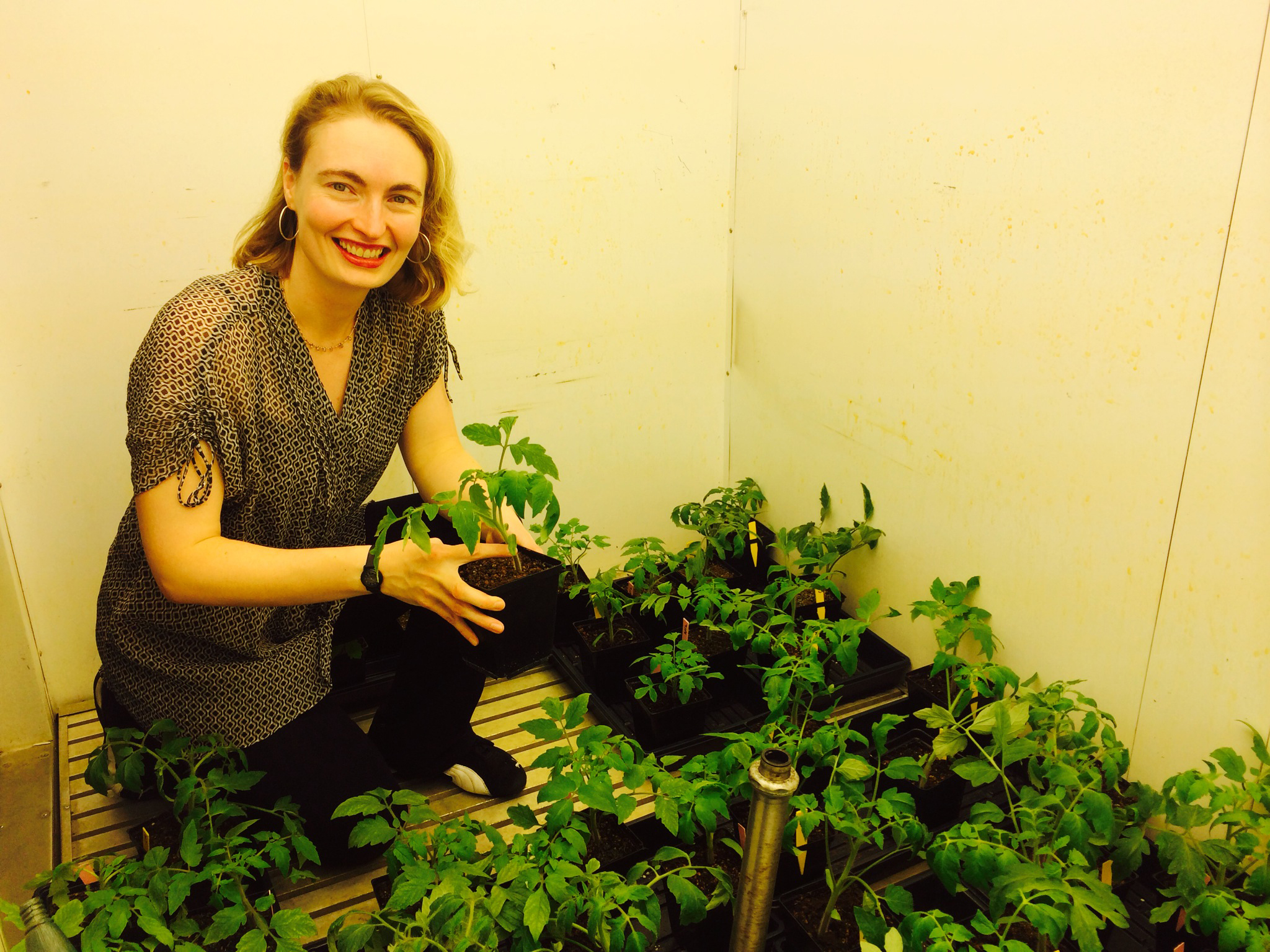FAYETTEVILLE, Ark. — A team of scientists from Arkansas and Missouri has secured a $6 million research grant from the National Science Foundation to combat crop losses resulting from stresses such as drought, poor soil, insects and disease.
“Plant stress is arguably the greatest factor limiting global yields of food, fiber and fuel crops,” said Fiona Goggin, a professor of entomology at the University of Arkansas who serves as a co-principal investigator for the project. “However, plants possess mechanisms to adapt to stress, and these adaptations can be dramatically enhanced through breeding and biotechnology.”
The three-year research collaboration between Arkansas and Missouri research scientists will develop and apply advanced imaging technologies to help plant scientists select for hardier crops that can fend off insects, diseases and other stresses.
The research team will adapt imaging tools that are widely used in medical diagnostics — such as PET scans (positron emission tomography) — for use in plants. It will also use a robotic camera system for high-throughput phenotyping, an approach that allows plant scientists quickly and efficiently to compare how well many different plant types grow under stressful conditions.
Goggin said these different imaging tools will be used together to identify characteristics that help stressed plants absorb necessary nutrients from the soil, synthesize health-promoting antioxidants for humans and plants and mount defense responses against insects and other pests.
“These characteristics can then be enhanced in crop plants through breeding to increase yields and reduce the need for costly inputs such as pesticides, fertilizer and irrigation,” said Goggin, who holds a dual appointment with the University of Arkansas’ statewide Division of Agriculture and the Dale Bumpers College of Agriculture, Food and Life Sciences on the UA-Fayetteville campus.
The investigators believe this approach will shed light on how a plant’s genome — the sum total of its DNA — shapes its phenotype, or its appearance, health and productivity.
To assemble the expertise needed to achieve these goals, the project will establish a team of crop scientists, chemists and computer scientists from the University of Arkansas System Division of Agriculture, U of A-Fayetteville, the University of Arkansas at Pine Bluff, Arkansas State University at Jonesboro, the University of Missouri-Columbia and Washington University in St. Louis.
The consortium will also make its plant imaging technologies accessible to a network of more than 130 scientists at other institutions throughout Arkansas and Missouri by developing regional core facilities, offering training workshops and funding smaller pilot studies throughout the two states.
Goggin said the project will seek to build a strong science and technology workforce and promote the biotechnology industry in Arkansas and Missouri through industry internships, research exchanges between universities and other training opportunities for undergraduate students, graduate students and post-doctoral scholars. The research team will also work to advance scientific literacy in both states by developing new hands-on science teaching techniques for public schools.
The Arkansas project leaders in addition to Goggin are principal investigator Gail McClure, program director for the Arkansas Science and Technology Authority, and co-principal investigator Argelia Lorence, associate professor in metabolic engineering at Arkansas State University. The Missouri team is led by principal investigator John C. Walker, director of biological sciences at the University of Missouri-Columbia.
Topics
Contacts
Fiona Goggin, professor
Entomology
479-575-6751 ,
Dave Edmark, interim coordinator
Division of Agriculture Communications
479-575-6940,
